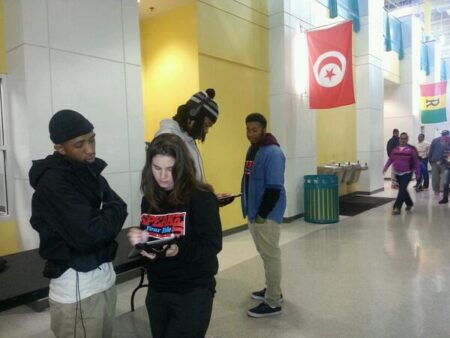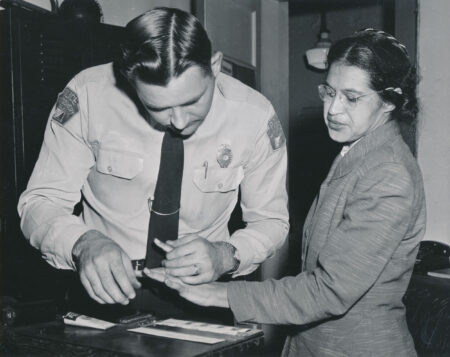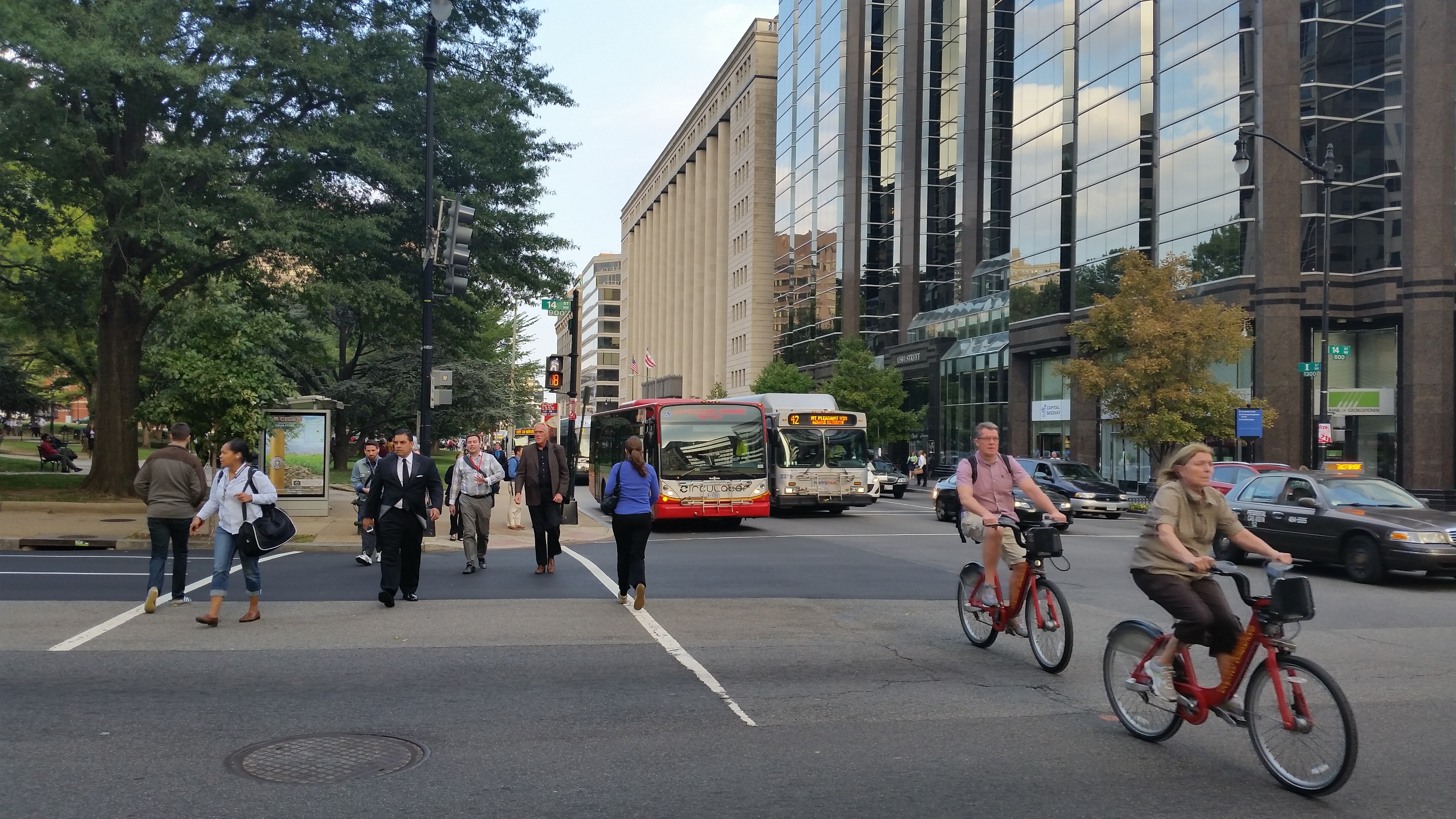From Plessy v. Ferguson to the Montgomery bus boycotts and beyond, public transportation in the U.S. has a long relationship with civil rights; Title VI of the Civil Rights Act of 1964 builds on this relationship by establishing a legal connection. How do civil rights and public transportation continue to work together today?
The Civil Rights Act of 1964
In 1868, the United States ratified a constitutional amendment designed to provide US citizens with equal protection under the law.
No State shall make or enforce any law which shall abridge the privileges or immunities of citizens of the United States; nor shall any State deprive any person of life, liberty, or property, without due process of law; nor deny to any person within its jurisdiction the equal protection of the laws.
Almost 100 years later, a combination of limiting Supreme Court decisions, local laws and practices, and institutional and cultural racism had reduced the impact of this amendment, resulting in unequal protection against racial discrimination and segregation across the country. After decades of organizing, lobbying, and direct action by dedicated civil rights activists (including Rosa Parks), President Lyndon Johnson asked Congress to pass a long- debated new civil rights bill, declaring, “we have talked long enough in this country about equal rights. We have talked for one hundred years or more. It is time now to write the next chapter, and to write it in the books of law.”
The resulting Civil Rights Act of 1964 included eleven sections (known as titles), addressing discrimination and segregation in areas such as public accommodations, public facilities, public education, federally assisted programs, and employment. Title VI of the Civil Right Act of 1964 prohibits discrimination based on race, color, or national origin in programs or activities that receive federal financial assistance.
What Title VI Means for Public Transit
Recipients of funding from the Federal Transit Administration (FTA) – including transit providers, metropolitan planning organizations (MPOs), state departments of transportation (DOTs), and all other subrecipients of FTA funding – must comply with Title VI of the Civil Rights Act of 1964. FTA has developed a regulatory document (FTA Circular 4702.1B) that outlines general Title VI compliance requirements for all recipients and subrecipients of federal transit funding, as well as additional requirements for fixed route transit providers, MPOs, and state DOTs.
Title VI compliance includes submitting a Title VI Program to FTA every three years. FTA’s Circular provides greater detail on the required contents of a Title VI Program, but they include:
- Describing how Title VI rights (including protections against discrimination) are communicated to the public;
- Details of Title VI-related investigations, complaints, and lawsuits related to allegations of discrimination on the basis of race, color, and/or national origin;
- A Language Assistance Plan; and
- A Public Participation Plan.
More than Checking a Box

At Foursquare ITP, developing and implementing a Title VI Program is far more than checking a box. A Title VI Program should embody the spirit of the law by creating processes through which public feedback can guide a transit provider’s decision-making as it expands or changes transit service in the future.
Foursquare ITP worked with Washington Metropolitan Area Transit Authority’s (WMATA) to develop the Public Participation Plan for their Title VI Program, called “Speak Up! It’s Your Ride.” As part of the planning process, Metrorail and Metrobus riders participated in a communication preferences survey to help WMATA determine the most innovative and effective ways to reach its riders. Foursquare ITP, in collaboration with WMATA staff and contracted street teams, administered the communication preferences survey – which was available in six languages –at pop-up events at transit stations and community festivals, community meetings, and focus groups with community service organizations. The survey was also available online. The results of this survey, as well as a best practice review of public involvement strategies, informed the development of a standardized public participation planning process for WMATA’s projects. The American Planning Association’s National Capital Chapter awarded WMATA’s Public Participation Plan the 2014 Merit Award for Community Outreach and Engagement.

Foursquare ITP has also worked with the District Department of Transportation (DDOT); Fairfax County, Virginia; Loudoun County, Virginia; the Central Ohio Transit Authority (COTA); and Blacksburg Transit (BT) on elements of their Title VI Programs, Title VI analyses, or Title VI training. In each project, Foursquare ITP and our clients have sought to strengthen the connections between civil rights regulations and everyday public transit operations, creating systems to guide decision-making processes that will prevent discrimination on the basis of race, color, and national origin today and in the future.
Images
2. Federal Transit Administration Circular 4702.1B.
3-4. WMATA Public Participation Plan Outreach Events.

